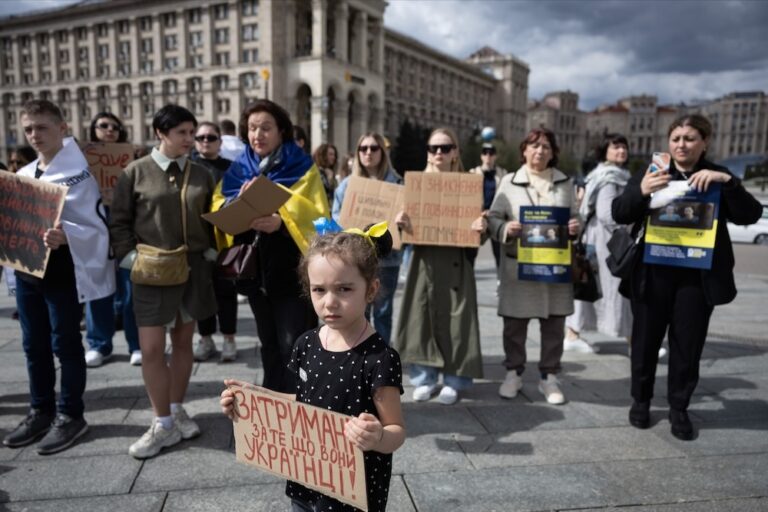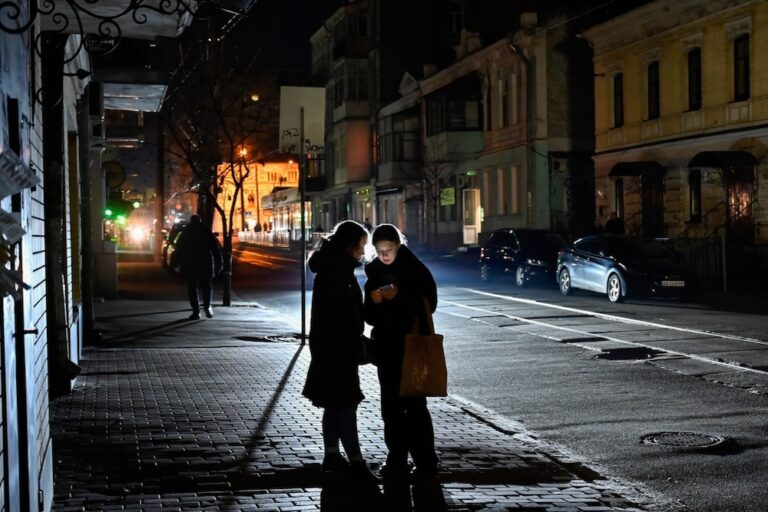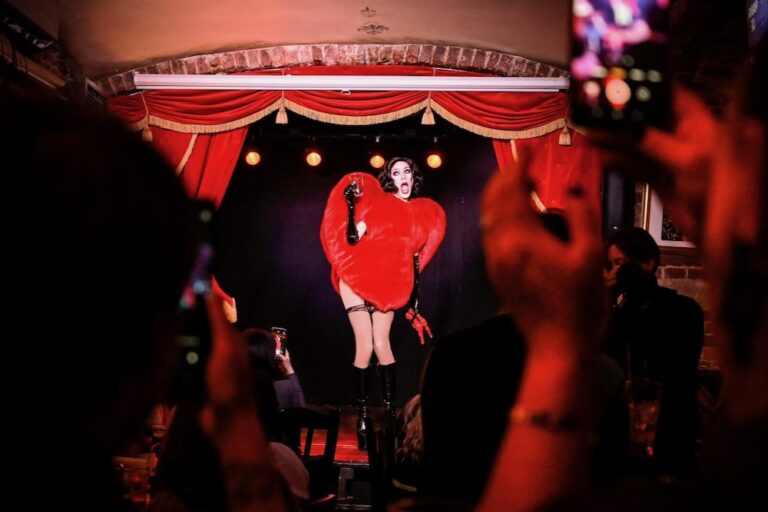NGOs in Russia have been subjected to inspections apparently aimed at determining whether they comply with legislation. The Civic Solidarity Platform appeals to the international community to speak out against the new attempt to intimidate these groups.
We, members of the Civic Solidarity Platform[i], are alarmed by the mass NGO inspections currently under way in Russia and express support and solidarity with our Russian colleagues who are affected by this development. We also appeal to the international community to stand firmly by Russia’s civil society at this time and to speak out against the new attempt to intimidate and discredit, in particular, groups that rely on foreign funding to promote respect for human rights and other universal values. The importance of such a response on the part of the EU and other international actors is underscored by the recently adopted landmark UN resolution on the protection of human rights defenders.
In the last few weeks, hundreds of NGOs in different parts of Russia have been subjected to inspections apparently aimed at determining whether they comply with legislation in force, especially recent repressive legislation on NGO funding from abroad and broadly worded anti-extremism legislation. The inspections have been carried out by officials from prosecutor’s offices accompanied by officials from the Ministry of Justice, the Tax Services and various other authorities in Moscow and St. Petersburg, as well as Saratov, Rostov, Penza, Perm, Krasnodar, Primorsky, Orenburg and other regions. Among those singled out for inspections are many human rights NGOs, including members of the Civic Solidarity Platform. As the inspections continue, it is believed that thousands of NGOs across Russia may be targeted in total in this nation-wide campaign that is expected to be concluded by April.
According to an order from the General Prosecutor’s office, which has been published by media, regional prosecutors have been instructed to particularly look into the “lawfulness” of NGO funding, as well as possible signs of “extremism” in their activities. While the inspections have been carried out in different ways in different cases, many NGOs subjected to inspections have reported that they have not received any advance notice or any clear explanation for the checks. NGOs have often been required to provide copies of long lists of various financial and other documents, within short deadlines and on the basis of vague requests regarding the information wanted, e.g. using formulations such as “any other” documents or information. Inspectors have also requested to examine NGO premises and to question NGO staff members. The inspections have caused uncertainty and distress among NGOs, both those already targeted and those expecting to be targeted, and have obstructed their regular work and created a heavy burden on them to seek to comply with extensive and ambiguous requests for information.
The current wave of NGO inspections follows the adoption of a series of new laws negatively affecting Russian civil society since Vladimir Putin’s return as president last year. Taken together, these laws have contributed to a seriously worsening climate for civil society. The so-called Foreign Agents Law, which entered into force in November 2012, is of particular concern. This law requires NGOs to register as “foreign agents” if they receive any kind or amount of foreign funding and engage in “political activities,” a term that is defined so loosely so as to include any activities aimed at “influencing” the decision-making of public authorities or “shaping” public opinion. In addition to the stigmatizing nature of this law, harsh sanctions are foreseen for violations of it: NGOs may be suspended without a court decision and given heavy fines and their leaders may face criminal charges. Another law adopted in December 2012 provides for suspending and freezing the assets of NGOs that receive funding from US sources and are deemed to engage in “political activities.” Shortly before the mass NGO inspections began, President Putin used a mid-February Federal Security Services gathering to reiterate his allegations that foreign-funded organizations work for “foreign interests” and to call for implementation of the new NGO legislation. Anti-extremism legislation already previously in force in Russia defines “extremism” in an excessively broad way and is open to arbitrary enforcement stifling legitimate free expression.
While Russian prosecutors do have powers to supervise that public associations comply with legislation in force, the context in which the current NGO inspections are being carried out coupled with their scope and nature can only create the impression that they are aimed at intimidating and putting pressure on NGOs, in particular those that benefit from foreign grants for public advocacy work on human rights and related issues. There is also reason to fear that these inspections constitute only the first step toward enforcing the new repressive NGO legislation, and thus toward silencing inconvenient groups. In an indication of this, a crew from the state-controlled NTV station known for its sensationalist coverage and anti-opposition propaganda showed up during the inspection of the human rights NGO Memorial in Moscow on 21 March, making its way into the organization’s office and filming there without asking for permission. Later that day NTV aired a story that accused Memorial of seeking to “hide” information about its sources of funding and suggested that the group may face legal consequences for failing to register as a “foreign agent.”
The same day as these events took place in Russia, the UN Human Rights Council adopted a new important resolution on the protection of human rights defenders (A/HRC/22/L.13). This resolution, which was passed without a vote and with broad cross-regional support, calls on states to create a safe and enabling environment in which human rights defenders can operate free from hindrance and insecurity, to refrain from criminalizing or imposing discriminatory restrictions on sources of funding for human rights activities, as well as to ensure that laws to protect national security are not misused to target human rights defenders or groups. The new resolution complements the 1999 Declaration on Human Rights Defenders that was adopted by consensus by the UN General Assembly and that commits states to take all necessary steps to guarantee the right to conduct human rights work individually and through associations and NGOs, as well as to solicit, receive and utilize resources for this purpose (e.g. by receiving funds from abroad).
In view of these two documents and other international agreements and treaties that protect the right to engage in human rights activities, as well as the rights to freedom of association and expression, we call for an end to the current campaign of intimidation and harassment of Russian NGOs. We urge members of the international community that have not yet done so to convey concerns about the ongoing mass NGO inspections, to express unequivocal support for Russia’s civil society and to insist that Russian legislation and policies affecting NGOs are brought into line with international human rights standards. We urge in particular the EU and its institutions and representatives to respond to this situation, in accordance with the EU commitment to support and protect civil society and human rights activists in third countries, as set out in the EU Human Rights Strategic Framework and the EU Guidelines on Human Rights Defenders. The EU should make clear that pressure and scare tactics against NGOs are contrary to Russia’s international human rights undertakings and incompatible with a genuine EU-Russia partnership for modernization, an initiative discussed at European Commission-Russian government talks held in Moscow on 21-22 March, just as a series of NGO inspections were carried out in this and other Russian cities.
Signed by the following members of the Civic Solidarity Platform:
International Partnership for Human Rights (Belgium)
Norwegian Helsinki Committee
Center for Civil Liberties (Ukraine)
Foundation of Regional Initiatives (Ukraine)
Human Rights Club (Azerbaijan)
Bulgarian Helsinki Committee
Crude Accountability (United States)
Legal Transformation Center (Belarus)
Promo Lex Association (Moldova)
Georgian Young Lawyers’ Association
Human Rights Center of Azerbaijan
Kharkiv Regional Foundation “Public Alternative” (Ukraine)
Helsinki Foundation for Human Rights (Poland)
Center for the Development of Democracy and Human Rights (Russia)
Center for National and International Studies (Azerbaijan)
Ukrainian Helsinki Human Rights Union
Public Verdict Foundation (Russia)
Netherlands Helsinki Committee
People in Need (Czech Republic)
UNITED for Intercultural Action (Netherlands)
Moscow Helsinki Group
Helsinki Committee of Armenia
Belarusian Helsinki Committee
Nota Bene (Tajikistan)
Helsinki Citizens’ Assembly – Vanadzor (Armenia)
Helsinki Committee for Human Rights in Serbia
Association of Ukrainian Human Rights Monitors on Law Enforcement (Association UMDPL)
Albanian Helsinki Committee
Belarusian Human Rights House (Lithuania)
International Youth Human Rights Movement
[i] The Civic Solidarity Platform is a coalition of human rights NGOs from Europe, Eurasia and the US. For more information, please visit http://www.civicsolidarity.org.


